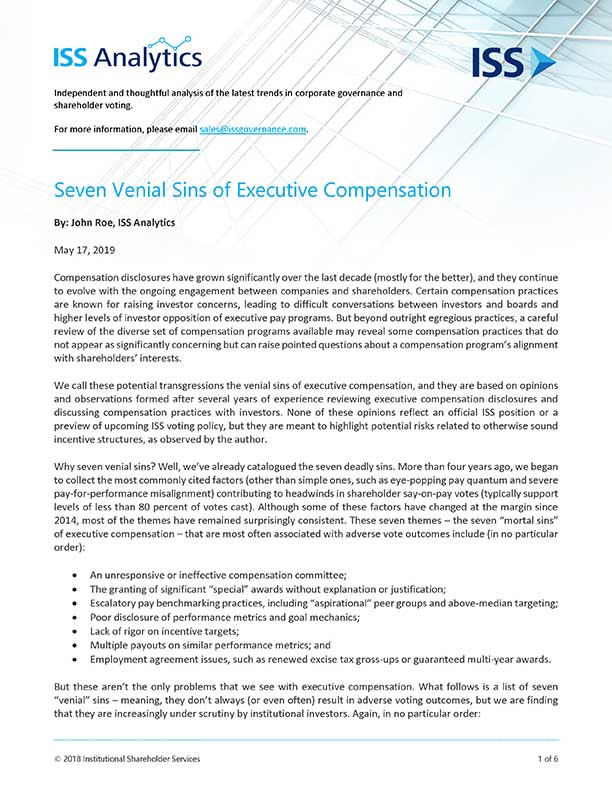
DATE PUBLISHED: JUNE 4, 2019
Compensation disclosures have grown significantly over the last decade (mostly for the better), and they continue to evolve with the ongoing engagement between companies and shareholders. Certain compensation practices are known for raising investor concerns, leading to difficult conversations between investors and boards and higher levels of investor opposition of executive pay programs. But beyond outright egregious practices, a careful review of the diverse set of compensation programs available may reveal some compensation practices that do not appear as significantly concerning but can raise pointed questions about a compensation program’s alignment with shareholders’ interests.
We call these potential transgressions the venial sins of executive compensation, and they are based on opinions and observations formed after several years of experience reviewing executive compensation disclosures and discussing compensation practices with investors. None of these opinions reflect an official ISS position or a preview of upcoming ISS voting policy, but they are meant to highlight potential risks related to otherwise sound incentive structures, as observed by the author.


